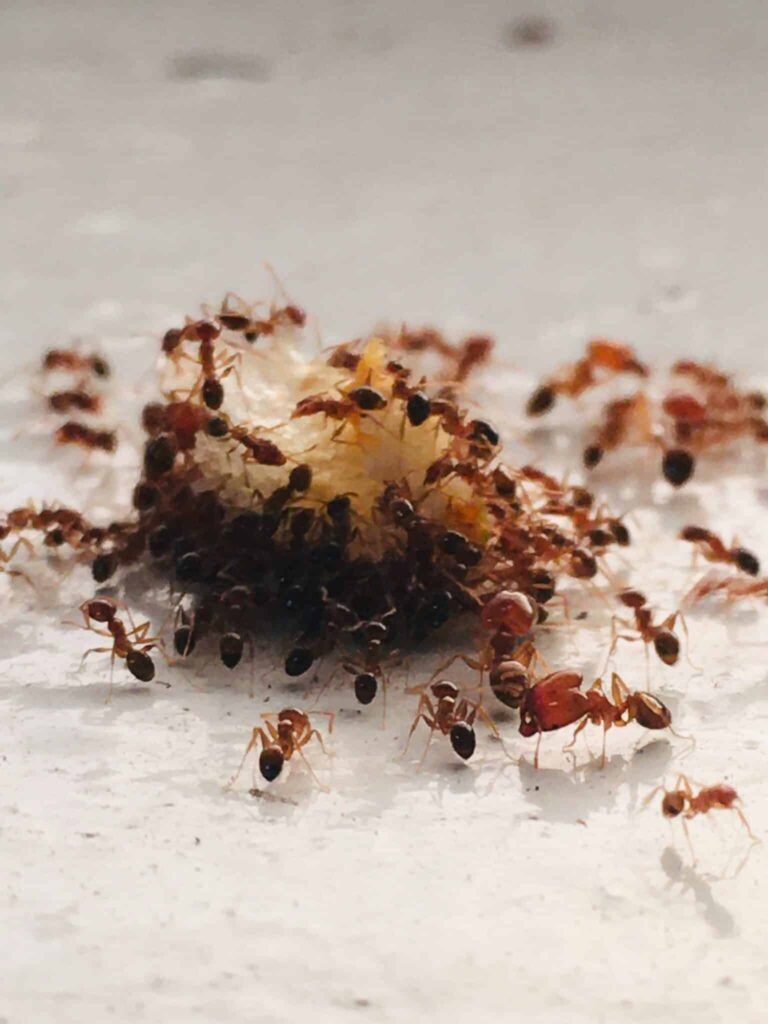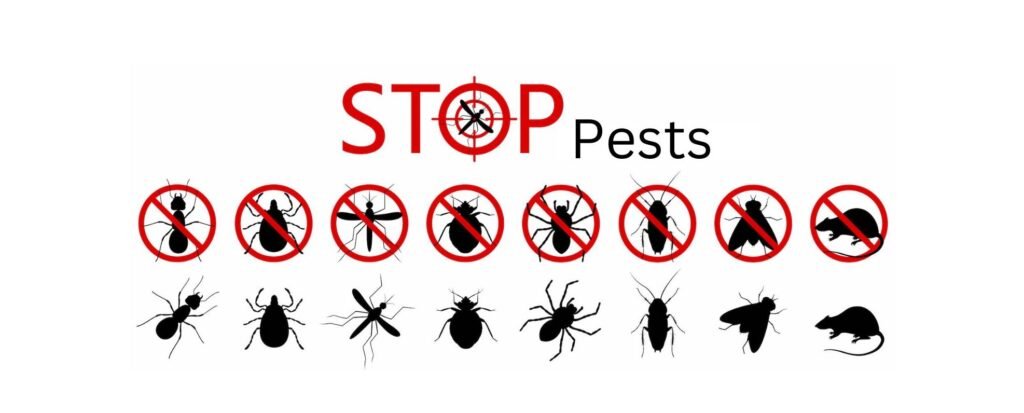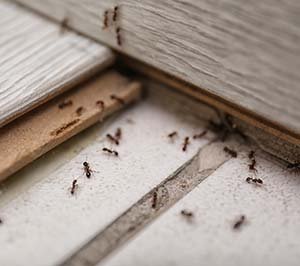Ants, those tiny insects that can quickly infiltrate your space and become a nuisance. You may have tried various DIY methods to get rid of them, but sometimes it’s best to call in the professionals. Assessing the need for professional pest control can help you determine when it’s time to make that call.
If the ant infestation in your home or office is beyond your control and keeps coming back despite your efforts, it’s a clear sign that it’s time to bring in an exterminator. These experts have the knowledge, experience, and tools to tackle ant problems effectively. Additionally, if you notice any signs of structural damage caused by ants, such as weakened wood or crumbling foundations, it’s crucial to call in the professionals promptly. They can assess the severity of the situation and provide the appropriate treatment to protect your property. Remember, knowing when to call an exterminator for ants can save you time, money, and a whole lot of frustration in the long run.


Signs of an Ant Infestation
Visual sightings of ants in your home
One of the most obvious signs of an ant infestation is the visual sighting of ants in your home. You may notice them crawling along your floors, countertops, or walls. They can be particularly active in areas where there is a food source, such as the kitchen or pantry. If you consistently see ants in your home, it is likely that there is a larger infestation lurking somewhere.
Traces of ant trails
Ants are known for leaving behind trails as they search for food. These trails can be seen as visible lines of ants moving in a straight path. If you notice a line of ants going from your kitchen to a specific area, it is a clear indication of an ant infestation. Following these trails can often lead you to the location of their nest.
Presence of ant nests or mounds
Ants build nests or mounds where they live and reproduce. These nests can vary in size and shape depending on the species of ant. Common locations for ant nests include gardens, lawns, or even underneath the foundation of your home. If you come across a visible ant nest or mound, it is a strong sign that you have an infestation that requires attention.
Identifying the Ant Species
Differentiating between common ant species
There are many different species of ants, and understanding which species you are dealing with can help with effective ant control. Some of the most common species include carpenter ants, fire ants, and pharaoh ants. Each species has unique characteristics and behaviors that influence their nesting habits and preferred food sources.
Understanding the behavior and habits of the specific ant species
Different ant species have different habits and behaviors. For example, carpenter ants are known for tunneling into wood, potentially causing structural damage to your home. Fire ants, on the other hand, are notorious for their painful bites and aggressive nature. By understanding the specific behaviors and habits of the ant species infesting your home, you can tailor your control methods accordingly.
Assessing the Severity of the Infestation
Identifying the number of ants present
The number of ants you see can provide an indication of the severity of the infestation. If you consistently notice a large number of ants in your home, it suggests a significant infestation. Additionally, if you see ants in multiple areas of your home, it may indicate that the infestation has spread throughout your property.
Determining the extent of damage to property
Ants can cause damage to your property in various ways. Carpenter ants, for example, can weaken wooden structures by tunneling through them. Fire ants can also cause damage by building nests in your yard, posing a threat to human and animal health. Assessing the extent of any damage caused by ants can help you gauge the severity of the infestation.
Assessing the potential health risks
Ants can pose health risks, especially if they contaminate your food or come into contact with surfaces that you frequently touch. Certain ant species, like pharaoh ants, are known to carry and transmit diseases. Assessing the potential health risks associated with the specific ant species in your home is essential for protecting yourself and your family.
DIY Ant Control Methods
Natural remedies and prevention techniques
There are several natural remedies and prevention techniques you can try to control ants. These include:
- Keeping your home clean and free from crumbs and spills.
- Sealing any entry points where ants may be entering your home.
- Using natural repellents, such as vinegar or essential oils, to deter ants from entering your space.
Store-bought ant control products
If natural remedies do not provide satisfactory results, there are various ant control products available in stores. These products may include ant baits, sprays, or granules. It is important to carefully read and follow the instructions on these products to ensure safe and effective use.
Home maintenance and cleanliness
Maintaining a clean and well-maintained home is crucial for preventing and controlling ant infestations. Regularly cleaning and decluttering your living areas, as well as properly storing food, can help reduce the chances of attracting ants into your home. Additionally, fixing any leaks or sources of excess moisture can deter ants that are attracted to damp environments.


When DIY Methods Fail
Persistent or recurring ant problem
If you have tried various DIY ant control methods without success, it may be an indication of a persistent or recurring ant problem. This could be due to factors such as a large and established colony or a hidden nest that is difficult to locate.
Difficulty in locating the ant nest
The key to effective ant control is locating and treating the ant nest. However, finding the nest can be challenging, particularly if it is hidden behind walls or in inaccessible areas. If you are unable to locate the ant nest on your own, it may be time to seek professional assistance.
Growing population despite control efforts
If you notice an increasing number of ants in your home despite your control efforts, it could be a sign of a growing population. Ant colonies can multiply rapidly, making it difficult to eradicate them without professional intervention.
Emotional and Psychological Impact
Signs of distress or anxiety due to ant infestation
Living with an ant infestation can take a toll on your emotional well-being. Constantly seeing ants in your home can cause distress and anxiety, making it difficult to relax and feel comfortable in your own space. It is important to address these emotional effects and seek help if needed.
Impact on quality of life and mental well-being
An ongoing ant infestation can significantly impact your quality of life. It may restrict your ability to enjoy certain areas of your home or engage in activities without the constant worry of encountering ants. Over time, this can negatively affect your mental well-being and overall happiness.
The importance of seeking professional help for peace of mind
Seeking professional help for ant control can provide peace of mind and alleviate the emotional burden associated with an infestation. Exterminators have the expertise, tools, and resources to effectively eliminate ants from your home. Knowing that you have professionals taking care of the problem can give you the confidence to regain control of your living space.


Health Risks and Allergic Reactions
Allergic reactions to ant bites or stings
Some individuals may experience allergic reactions to ant bites or stings. These reactions can range from mild itching and swelling to severe anaphylaxis, which requires immediate medical attention. If you or a family member has a known allergy to ants, it is crucial to seek professional help to eliminate the infestation and reduce the risk of further encounters.
Contamination of food and surfaces by ants
Ants are known scavengers and can contaminate your food and surfaces. This can pose a risk to your health, as they can carry harmful bacteria and pathogens. If you notice ants in your kitchen or pantry, it is essential to take action to prevent food contamination and protect your well-being.
Diseases transmitted by ants
Certain ant species are known to transmit diseases, either directly through their bites or indirectly through contact with contaminated surfaces. Diseases such as salmonellosis and dysentery can be transmitted by ants, making it imperative to tackle infestations promptly to minimize the risk of disease transmission.
Possibility of Structural Damage
Ants causing damage to wooden structures
Carpenter ants, in particular, can cause significant damage to wooden structures in your home. They excavate galleries within the wood, weakening its structural integrity over time. If you have noticed ants in or around wooden structures, it is crucial to address the infestation promptly to prevent further damage.
Undermining the stability of buildings
In some cases, ants can undermine the stability of buildings, especially if they are nesting in structural components. This can pose a safety hazard for occupants and may require professional intervention to ensure the structural integrity of the building.
Impact on property value
An untreated ant infestation can have a negative impact on the value of your property. When it comes time to sell your home, potential buyers may be deterred by the presence of ants. By addressing the infestation early on, you can protect and maintain the value of your property.


Environmental Concerns
Harmful effects of certain ant control chemicals
Some ant control chemicals can have harmful effects on the environment. They may contaminate soil, water sources, or harm beneficial insects and wildlife. When considering ant control methods, it is important to choose environmentally friendly options that minimize harm to the ecosystem.
Impact on beneficial insects and the ecosystem
Ants play a crucial role in the ecosystem, contributing to soil aeration and nutrient cycling. Indiscriminate use of ant control methods can disrupt natural ecological balance and harm other beneficial insects. It is important to consider the potential impact on the ecosystem when choosing ant control measures.
Choosing eco-friendly pest control options
There are eco-friendly pest control options available that minimize harm to the environment while effectively managing ant infestations. These options often involve methods such as baiting systems or targeted treatments that specifically address the ant species present in your home. Consulting with a professional pest control service can help you explore and implement these eco-friendly options.
When to Seek Professional Help
Persistent or worsening ant infestation
If your ant infestation persists or worsens despite your efforts, it is a clear indication that professional help is needed. Exterminators have the knowledge and experience to identify the root cause of the infestation and develop a comprehensive plan to eliminate the ants from your home.
Potential risks to health and property
Ant infestations can pose significant risks to your health and property. If you have concerns about potential health risks, property damage, or the overall impact of the infestation on your well-being, it is crucial to seek professional help. Taking prompt action can prevent further harm and ensure a safe living environment.
Unsuccessful attempts at DIY ant control
If your DIY ant control methods have been unsuccessful, it may be time to admit defeat and call in the professionals. Exterminators have access to specialized products and techniques that are more potent and targeted than what is available over the counter. Their expertise can help you achieve long-lasting ant control and prevent future infestations.
In conclusion, identifying the signs of an ant infestation, understanding the ant species, assessing the severity of the infestation, and implementing appropriate ant control measures are all crucial steps in effectively managing ant problems in your home. While DIY methods can be effective in some cases, persistent infestations, potential health risks, and the desire for peace of mind warrant seeking professional help. By addressing ant infestations promptly and appropriately, you can ensure a pest-free home and protect your property and well-being.


Your Expert in Animal Control and Extermination. Trust our experience for humane, effective pest management, protecting your property and ensuring peace of mind with Michael S.





